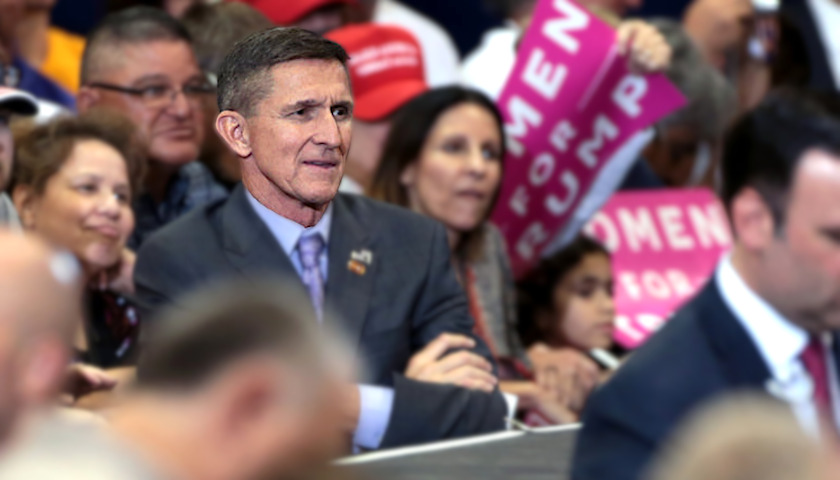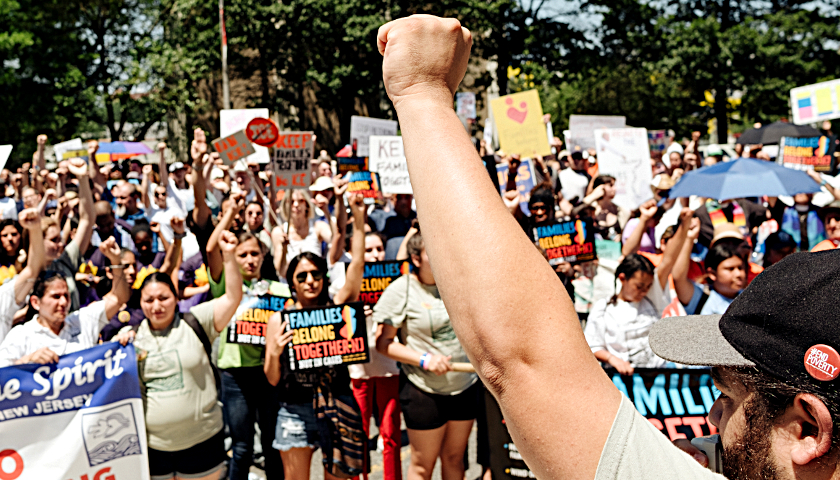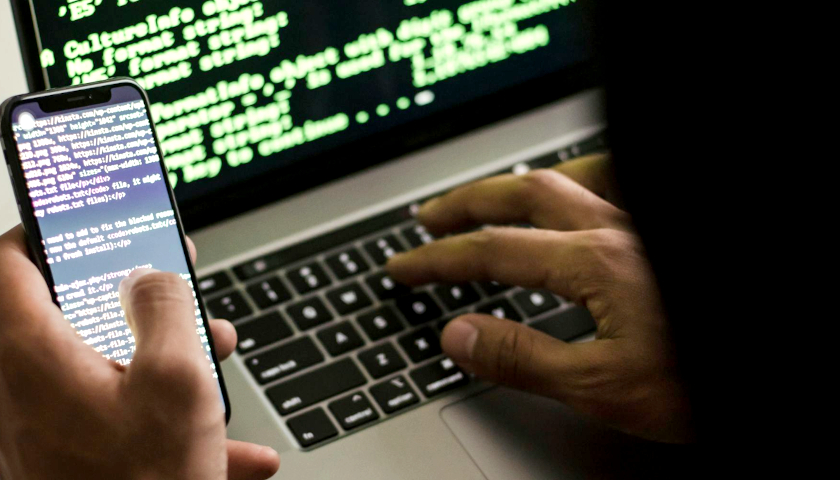by Victor Davis Hanson
Certainly, no one should defend a top-ranking federal employee’s lying to federal investigators or to his superiors in the Trump Administration, if that is what former National Security Advisor Michael Flynn did, as evidenced by his own confession.
Note if Flynn lied to President Trump or Vice President Mike Pence about details of his private conversations, then that is unethical and understandably should be grounds for dismissal. The distinction, however, is whether Flynn deserved to be fired or to be in jail.
What put Flynn in legal jeopardy were the general’s statements to FBI investigators that purportedly were false, and allegedly given deliberately to mislead two federal investigators.
I express doubt here only because of media reports and leaks that Special Counsel Robert Mueller later either pressured Flynn for a confession, by strategies of financial exhaustion or leveraged him by threats to indict his son, or both.
Without that pressure, one wonders how Flynn might have explained his earlier alleged inconsistencies in recounting a private off the record conversation with a foreign diplomatic official to two FBI officials. That is, had he had adequate legal resources or not faced prosecutorial threats to indict his son, would he have later claimed that months earlier that he had been dishonest to Peter Strzok and his fellow FBI investigator?
Had Flynn at the time been apprised of why Andrew McCabe was sending his agents over to the White House, Flynn would have had choices, perhaps Lois Lerner-like to plead the Fifth, or in James Comey fashion he initially could have told chief interrogator Peter Strzok on 245 occasions that he did not know or did not remember, or he simply could have told investigators in James Clapper fashion that he was giving the least untruthful version of the story.
Moreover, a half-century’s worth of jurisprudence now has contextualized how evidence is obtained, and why it is often excluded in criminal cases to uphold larger principles of justice. We do not wish our prosecutors to become obsessive and vindictive in spending our time and treasure misleading citizens, without counsel, to say something that they might not otherwise have said had they not been targeted—all in order to jail them when our officials otherwise have found no other wrongdoing.
Even as importantly, issues of equality under the law certainly apply in the Flynn case.
James Comey has admitted he took advantage of the Trump Administration’s inexperience and no doubt assumed he could do so without repercussions due to Trump’s perceived unpopularity. In sending his FBI agents to Flynn under the cloak of friendly persuasion and having his deputy, Andrew McCabe, misleadingly ask Flynn that he talk freely about lots of things without legal counsel, Comey admits to having gotten away with something he could not have done with an administration more experienced in the ways of FBI investigators. Had the FBI hierarchy not misrepresented the purpose of their investigators, Flynn might either not have cooperated or have spoken in a manner not suitable to the FBI’s agenda.
Yet sworn statements confirm that, at least initially, the investigators seemed to have found the uncounseled Flynn veracious. I say “seemed” because we do not know whether Strozk and his fellow investigator believed Flynn was truthful because of gut instinct or because of Flynn’s physical reactions, or because they had actual transcripts of Flynn’s surveilled conversations to collate with Flynn’s then allegedly accurate answers. If discrepancies had existed between transcripts and testimonies, perhaps they were they written off—given Flynn’s calm—as natural misremembering.
Again, this is all surmise because apparently Strozk neither taped his questioning of Flynn nor memorialized in great detail his favorable impressions shortly after his interrogatory—other than to note how relaxed and unguarded Flynn was, given his lack of counsel and the impression that he was among friends (e.g. “Flynn was so talkative, and had so much time for them, that Strzok wondered if the National Security adviser did not have more important things to do than have such a relaxed, non-pertinent discussion with them.”)
Note that Strzok’s own phone would later and mysteriously be scrubbed of a sizable trove of text messages between him and his paramour, Lisa Page, by the Mueller team, despite the stated intent of the Inspector General to examine the phone’s full contents. One wonders whether Strozk remarked about the Flynn interrogation in his daily texting to Page, given that the deletions may roughly match the time frame of the Flynn interview.
The Illegal Basis of the Interrogation and Leaks
The original justification for the FBI interviews of Flynn ostensibly was holdover Obama appointee Sally Yates’s laughable efforts to trap Flynn in a Logan Act violation, without which she apparently had no cause to investigate his transitional and quite legal conversations, secret transcripts of which already were apparently in her possession.
The Washington Post reported on the Flynn conversation with the Russian ambassador. How they knew of such conversations and perhaps the content of such private meetings might imply that someone had illegally leaked to the press classified surveillance information that circulated among government officials such as Comey and Yates. Mr. Mueller now has no interest in that real crime.
So how Flynn eventually was found guilty of lying was apparently accomplished much later by collating his testimonies (not under oath, or with counsel, but to federal investigators posing as friendly incidental visitors) with reverse-targeted transcripts—the prompt for which is still murky, but might be based on FISA warrants of dubious authenticity and rationale.
It is strange that federal judge Rudolph Contreras who initially presided over Flynn’s case and accepted his guilty plea abruptly recused himself from the case. Contreras, remember, was one of the three D.C. federal FISA court justices who ultimately decided to issue warrants to monitor those considered suspect due to alleged Russian-Trump collusion.
Add up the circumstances and purpose of the FBI interviews, the strange government covert surveillance, the admission by the former FBI Director of the unusual latitude he took, the fact that interrogators likely knew the answers to Flynn’s questions from transcripts before they asked him questions, the various conflicts of interests and deceit of Andrew McCabe, the always suspect landscape surrounding invoking the calcified Logan Act, Flynn’s widely known unpopularity with the outgoing Obama administration justice and intelligence communities, the politics of Yates, McCabe, Comey, and Strzok—and one legitimately can conclude that the challenge was not rooting out serious crimes that unexpectedly had led to Michael Flynn.
Instead, the Justice Department and FBI were focusing first on Flynn and then searching for enough crimes to indict him, or more likely recalibrating Flynn’s DC swamp bombast, braggadocio, and transitional self-important blabber into criminal acts.
Equal Justice Under Law?
We are often told that Robert Mueller was mandated to investigate all crimes that tangentially passed his way as he pursued his prime Russian collusion mandate. That is a fine and necessary agenda. But the reason that Mueller is losing credibility is not due to some right-wing conspiracy against him, but because of the public exasperation that the law concerning perjury and giving false testimony has not been equally applied.
We know that Comey’s and McCabe’s testimonies about leaks and the importance of the Steele dossier for FISA warrants cannot be reconciled. The inspector general seems to think McCabe is lying. Comey himself in still other areas involving sworn testimonies and leaking of government documents may face legal exposure. Most shockingly, Comey at least in his public and private sworn statements has mixed up his stories when he keeps denying that he once testified under oath to Congress that his agents initially found Flynn truthful. On 245 occasions in sworn congressional testimony, Comey claimed he did not remember or know the answer to questions answered. Had Flynn answered like that when not under oath to Peter Strzok would he have been indicted or exonerated?
Clinton aides Huma Abedin and Cheryl Mills likely gave false testimonies about their knowledge of the private Clinton email server to at least one of the same agents who interviewed Michael Flynn. The nation’s two top intelligence officers, Brennan and Clapper, knowingly gave false testimony and have admitted to such, while under oath to Congress on matters of grave national importance, respectively concerning drone attacks abroad, surveillance of U.S. Senate staff computers, and NSA intercepts. So far none has been charged by any federal prosecutor.
In our Orwellian era, just as some hush monies are not campaign violations and others are, so too some lying to federal officials is classified as inadvertent misremembering and others as proof of felonious intent. In a Washington world, where Hillary Clinton can pay Christopher Steele with her campaign funds to find dirt on rival Donald Trump, and then list such secret payments as “legal expenses,” and be met not just with exoneration, but an absolute lack of interest in her skullduggery, the only guiding principle is that the nature of the crime matters not at all while the politics of the purported criminal is everything.
Mueller is not interested in whether hiding the spending of campaign money to find dirt on a rival through the intervention of British and Russian nationals is a campaign violation; instead, he is focused on whether using one’s own money to obtain silence from a past liaison violated campaign laws.
Lingering Questions and Manufactured Guilt
So we are left with a series of mysteries.
Was Flynn reverse targeted through a FISA warrant prompted by the hysterical climate prompted by the phony Steele dossier?
Did Sally Yates, the acting attorney general in January 2017, concoct the entire ambush on the dubious premises of the Logan Act?
Did Flynn for financial or family reasons in extremis lie to the Mueller team about earlier supposedly lying to the FBI?
Will anyone be prosecuted for illegally leaking the monitoring of Flynn to the Washington Post?
Did the FBI later recalibrate its initial assessments of the Flynn interview? Why would Strzok claim Flynn appeared veracious if he knew that his answers were at odds with transcripts of Flynn’s conversations in his possession?
Why did Comey and McCabe scheme to have Flynn believe that he would be interviewed under friendly circumstances without need of an attorney?
What exactly are the uniform DOJ and FBI standards relating to lying to federal officials and violating the Logan Act—and did they apply to Cheryl Mills, Huma Abedin, Hillary Clinton, Andrew McCabe—or John Kerry?
And has any federal judge, in the manner of Judge Emmet Sullivan, accused a defendant in his court of crimes that he had not confessed to and had not even been formally charged with—namely being a foreign agent operating in the White House, and engaged in treasonous acts, which were all demonstrably false assertions?
Michael Flynn is often cited as the Mueller’s investigation “big fish,” the sole high-ranking Trump Administration official so far to be indicted. He may well have been arrogant and made money in the usual creepy Washington swampish way. But he certainly would not be facing criminal liability had the Justice Department and FBI not first targeted him as guilty of something, and then searched desperately to find or construct that something.
It turns out that those who sought to indict Michael Flynn are more likely to be guilty of unethical behavior than the target of their zeal.
– – –
Victor Davis Hanson is an American military historian, columnist, former classics professor, and scholar of ancient warfare. He was a professor of classics at California State University, Fresno, and is currently the Martin and Illie Anderson Senior Fellow at Stanford University’s Hoover Institution. He has been a visiting professor at Hillsdale College since 2004. Hanson was awarded the National Humanities Medal in 2007 by President George W. Bush. Hanson is also a farmer (growing raisin grapes on a family farm in Selma, California) and a critic of social trends related to farming and agrarianism. He is the author most recently of The Second World Wars: How the First Global Conflict was Fought and Won (Basic Books).





